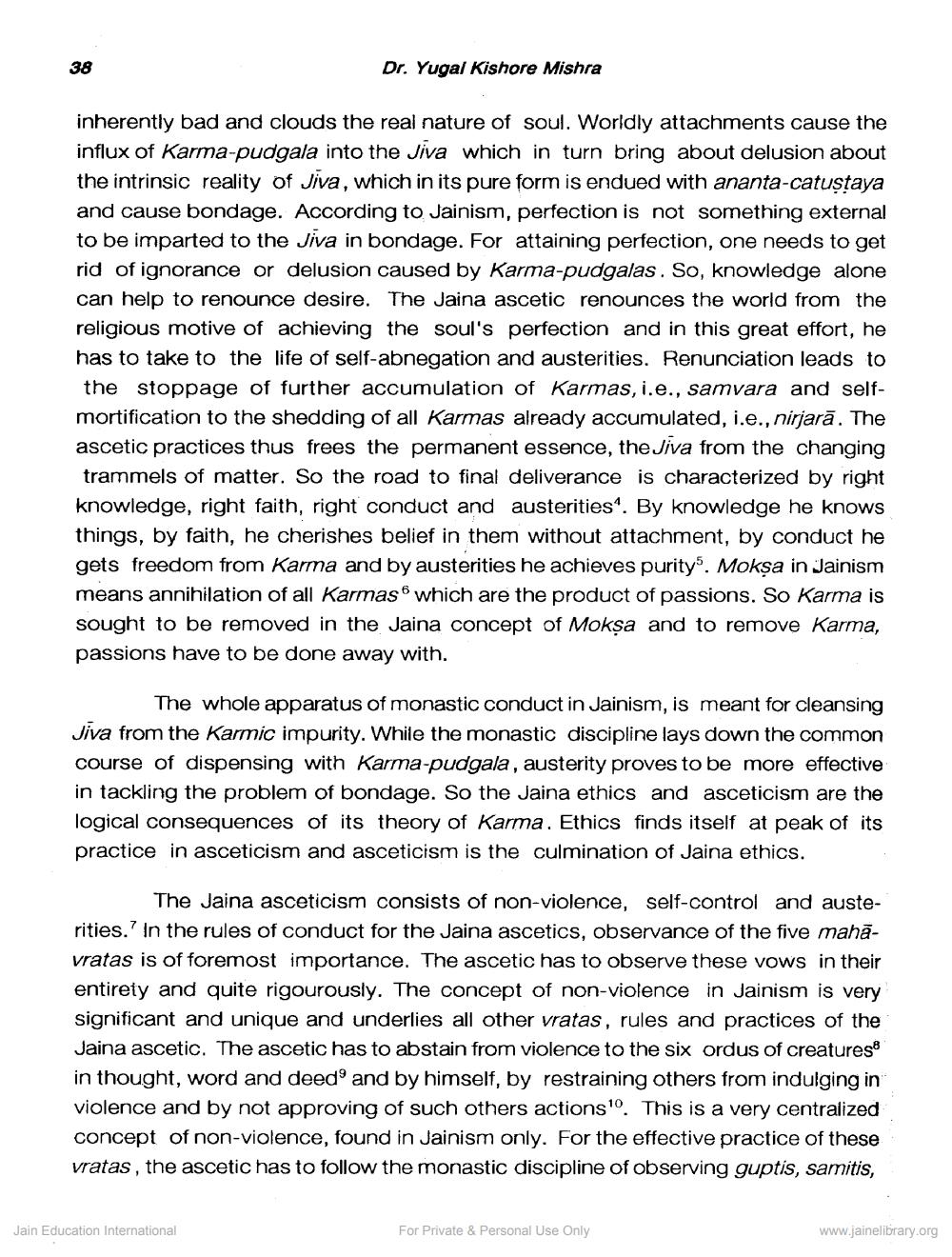________________
Dr. Yugal Kishore Mishra
inherently bad and clouds the real nature of soul. Worldly attachments cause the influx of Karma-pudgala into the Jiva which in turn bring about delusion about the intrinsic reality of Jiva, which in its pure form is endued with ananta-catustaya and cause bondage. According to Jainism, perfection is not something external to be imparted to the Jiva in bondage. For attaining perfection, one needs to get rid of ignorance or delusion caused by Karma-pudgalas. So, knowledge alone can help to renounce desire. The Jaina ascetic renounces the world from the religious motive of achieving the soul's perfection and in this great effort, he has to take to the life of self-abnegation and austerities. Renunciation leads to
the stoppage of further accumulation of Karmas, i.e., samvara and selfmortification to the shedding of all Karmas already accumulated, i.e., nirjarā. The ascetic practices thus frees the permanent essence, the Jiva from the changing
trammels of matter. So the road to final deliverance is characterized by right knowledge, right faith, right conduct and austerities“. By knowledge he knows things, by faith, he cherishes belief in them without attachment, by conduct he gets freedom from Karma and by austerities he achieves purity. Moksa in Jainism means annihilation of all Karmas which are the product of passions. So Karma is sought to be removed in the Jaina concept of Moksa and to remove Karma, passions have to be done away with.
The whole apparatus of monastic conduct in Jainism, is meant for cleansing Jiva from the Karmic impurity. While the monastic discipline lays down the common course of dispensing with Karma-pudgala , austerity proves to be more effective in tackling the problem of bondage. So the Jaina ethics and asceticism are the logical consequences of its theory of Karma. Ethics finds itself at peak of its practice in asceticism and asceticism is the culmination of Jaina ethics.
The Jaina asceticism consists of non-violence, self-control and austerities. In the rules of conduct for the Jaina ascetics, observance of the five mahāvratas is of foremost importance. The ascetic has to observe these vows in their entirety and quite rigourously. The concept of non-violence in Jainism is very significant and unique and underlies all other vratas, rules and practices of the Jaina ascetic. The ascetic has to abstain from violence to the six ordus of creatures in thought, word and deed and by himself, by restraining others from indulging in violence and by not approving of such others actions. This is a very centralized concept of non-violence, found in Jainism only. For the effective practice of these vratas, the ascetic has to follow the monastic discipline of observing guptis, samitis,
Jain Education International
For Private & Personal Use Only
www.jainelibrary.org




